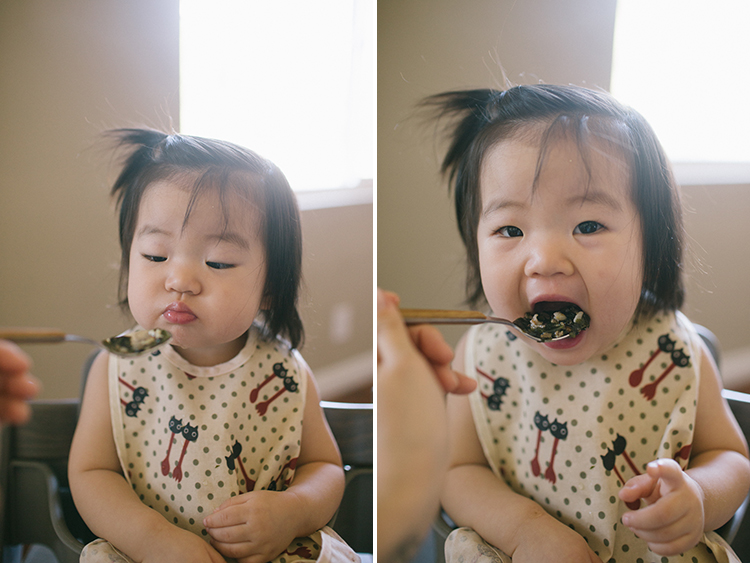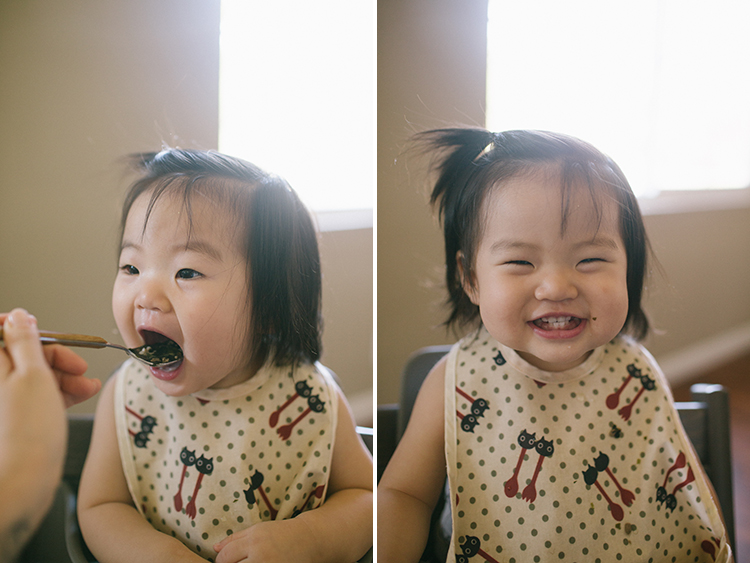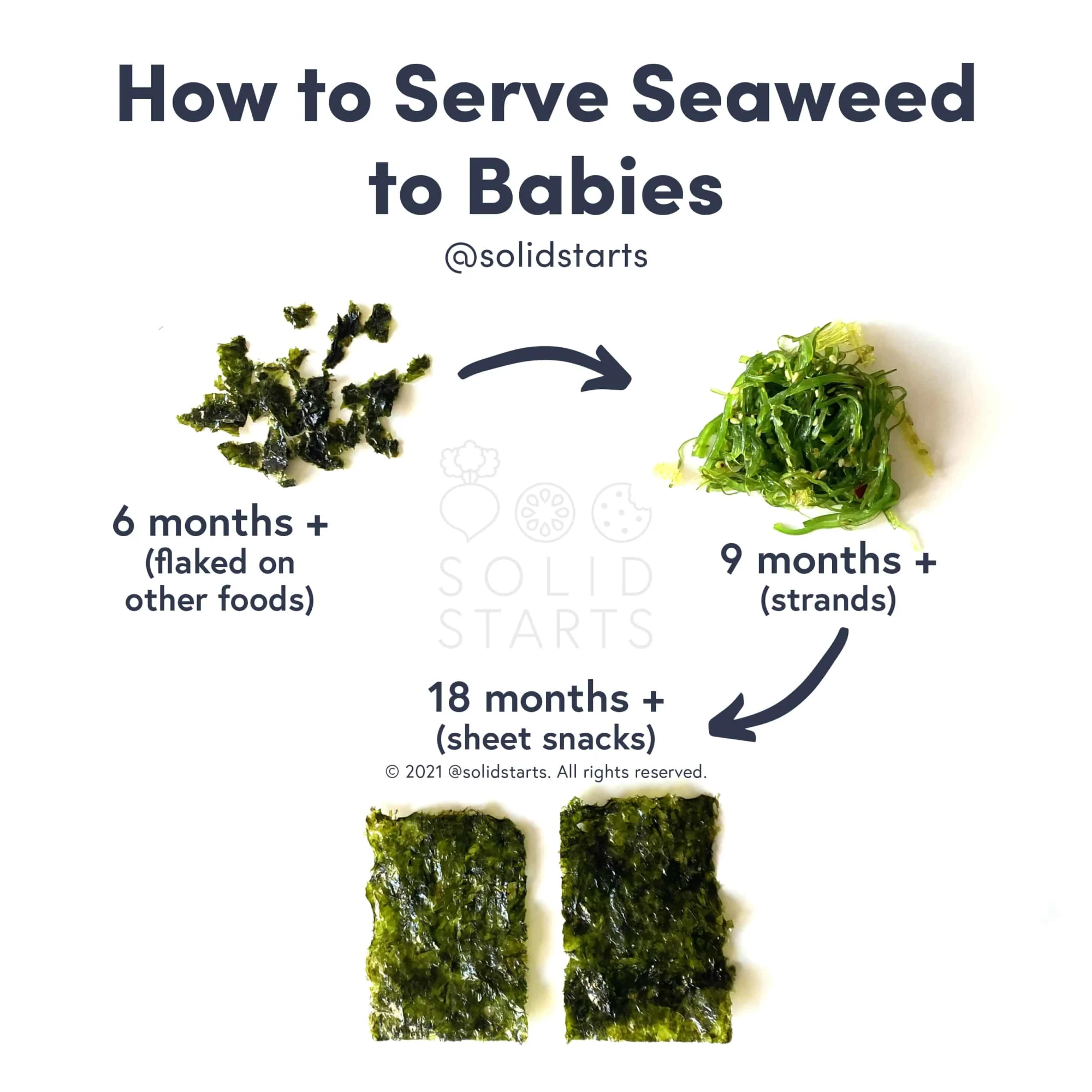Can Babies Eat Seaweed?

Babies can eat seaweed, but it should be given in moderation. Too much can lead to iodine toxicity.
Seaweed is a nutritious food rich in vitamins, minerals, and fiber. It can be a healthy addition to a baby’s diet when introduced properly. Seaweed contains iodine, which supports thyroid function, and omega-3 fatty acids that promote brain development. Always ensure the seaweed is low in sodium and prepared safely to avoid choking hazards.
Consulting with a pediatrician before introducing seaweed is advisable, especially to monitor any allergic reactions. Including seaweed in small, controlled amounts can offer various health benefits for growing babies. This approach ensures they receive essential nutrients without the risk of overconsumption.

Credit: lauraiz.com
Introduction To Seaweed As A Food Option
Seaweed is gaining popularity as a nutritious food. Parents wonder if babies can eat seaweed. Understanding seaweed’s benefits and safe introduction is essential.
Nutritional Benefits Of Seaweed
Seaweed is a powerhouse of nutrients. It is rich in vitamins A, C, E, and K. It also contains essential minerals like iodine, calcium, and iron.
Here is a table highlighting the nutritional content of seaweed:
| Nutrient | Benefits |
|---|---|
| Vitamin A | Supports eye health |
| Vitamin C | Boosts the immune system |
| Vitamin E | Acts as an antioxidant |
| Vitamin K | Aids in blood clotting |
| Iodine | Supports thyroid function |
| Calcium | Strengthens bones |
| Iron | Prevents anemia |
Seaweed contains fiber. Fiber aids digestion and prevents constipation in babies.
Age Recommendations For Introducing New Foods
Introduce new foods to babies at the right age. It ensures safety and proper digestion.
Pediatricians recommend starting solid foods at around 6 months of age. This includes fruits, vegetables, and grains.
Seaweed can be introduced after 6 months. Ensure the seaweed is in a safe form like powder or tiny pieces.
Here are some tips for introducing seaweed:
- Start with a small amount
- Mix it with other foods
- Observe for any allergic reactions
Always consult with a pediatrician before introducing new foods.

Credit: lauraiz.com
Safety Considerations For Infants
Introducing new foods to infants requires careful consideration. Seaweed, a nutrient-rich food, poses unique safety concerns. Parents need to be aware of potential risks. The following sections will discuss these concerns.
Allergy Risks Associated With Seaweed
Seaweed can cause allergic reactions in some infants. Common symptoms include:
- Rashes
- Swelling
- Breathing difficulties
Monitor your baby after introducing seaweed. Seek medical help if any symptoms appear.
Heavy Metals And Contaminants In Seaweed Products
Seaweed can absorb heavy metals from the ocean. This includes:
- Arsenic
- Lead
- Mercury
Heavy metals can harm a baby’s developing body. Choose seaweed products tested for contaminants. Look for labels indicating safety.
Here is a quick reference table:
| Heavy Metal | Potential Harm |
|---|---|
| Arsenic | Can affect brain development |
| Lead | Can cause learning issues |
| Mercury | Can damage the nervous system |
Incorporating Seaweed Into Baby Diets
Seaweed is a nutritious addition to your baby’s diet. It is packed with essential vitamins and minerals. These nutrients support your baby’s growth and development. Let’s explore how to safely add seaweed to your baby’s meals.
Choosing The Right Seaweed Products
Not all seaweed products are suitable for babies. Choose products labeled as “baby-safe” or “food-grade”. Avoid seaweed with added salt or preservatives. Here are some safe options:
- Nori: Mild and easy to digest.
- Wakame: Soft texture, great for soups.
- Kombu: Rich in iodine, use in moderation.
Creative Ways To Serve Seaweed To Babies
Introduce seaweed to your baby’s diet in fun ways. Here are some ideas:
- Seaweed Puree: Blend seaweed with vegetables.
- Seaweed Soup: Add wakame to baby soups.
- Seaweed Snacks: Offer tiny nori pieces as finger food.
Seaweed can be mixed into various dishes. Use it in mashed potatoes or rice. Add small seaweed flakes to scrambled eggs. You can even sprinkle seaweed on baby-friendly pasta.
Seaweed is versatile and nutritious. It can make meals interesting for your baby. Always introduce new foods gradually. Watch for any allergic reactions.

Credit: solidstarts.com
Frequently Asked Questions
Is Dried Seaweed Ok For Babies?
Yes, dried seaweed is generally safe for babies over six months. It’s rich in nutrients but serve in small amounts. Consult your pediatrician before introducing it to avoid allergies or excessive iodine intake.
Is It Safe For Kids To Eat Seaweed?
Yes, it is safe for kids to eat seaweed in moderation. Seaweed provides essential nutrients but monitor iodine intake.
Is Dried Seaweed A Healthy Snack?
Yes, dried seaweed is a healthy snack. It’s rich in vitamins, minerals, and antioxidants. It’s low in calories and fat.
How Much Seaweed Is Too Much For A Toddler?
Toddlers should not consume more than 0. 5 grams of dried seaweed per day. High iodine levels can harm them.
Can Babies Eat Seaweed Safely?
Yes, babies can eat seaweed in small amounts. Ensure it’s finely chopped to avoid choking hazards.
Conclusion
Introducing seaweed to your baby’s diet can offer numerous health benefits. Ensure the seaweed is sourced from a trusted supplier. Always consult with your pediatrician before adding new foods. Moderation is key to avoid potential iodine overload. With the right precautions, seaweed can be a nutritious addition to your baby’s meals.
